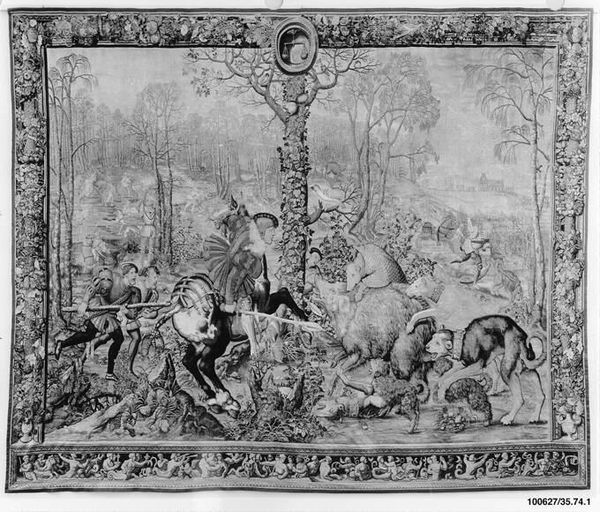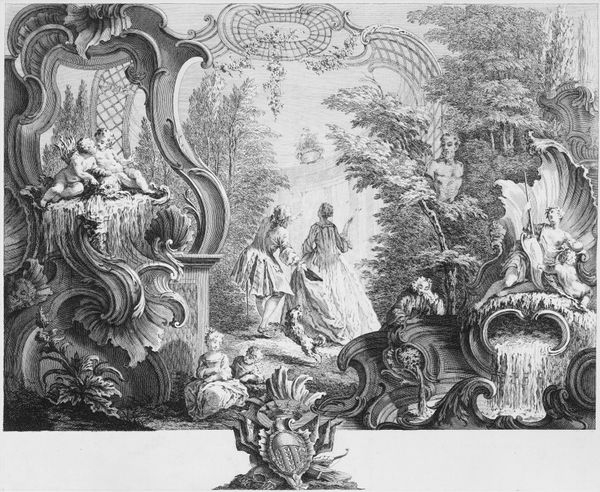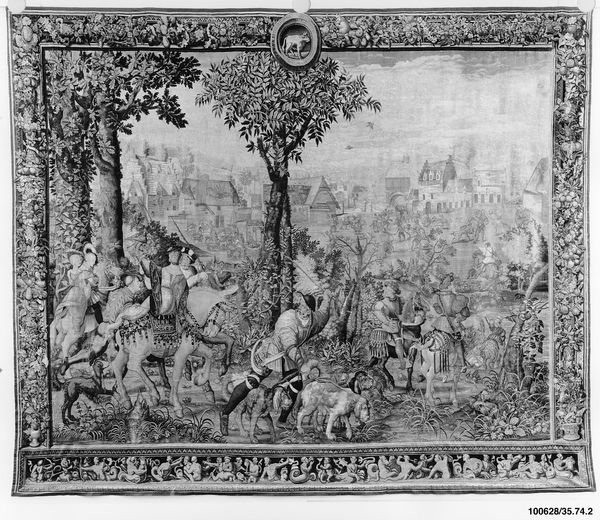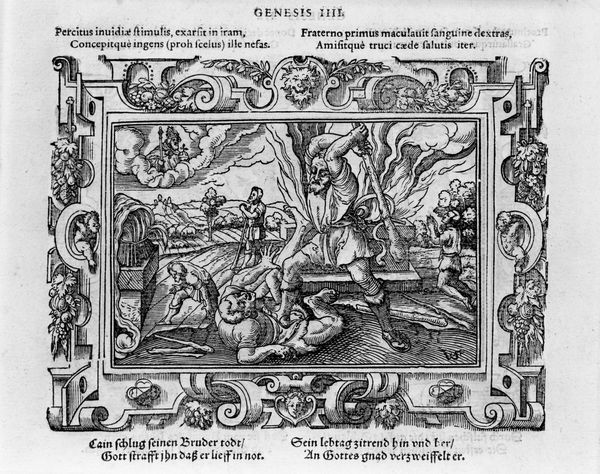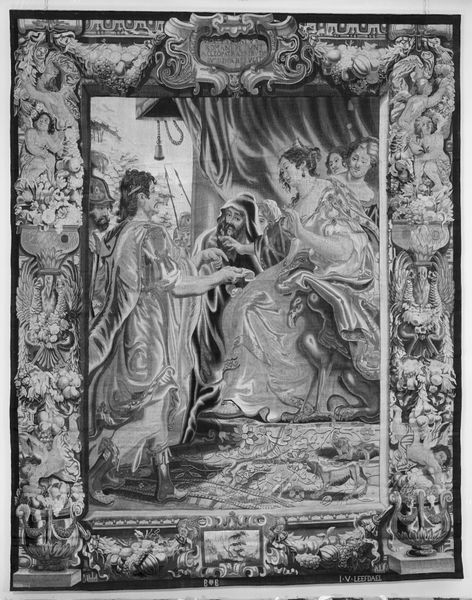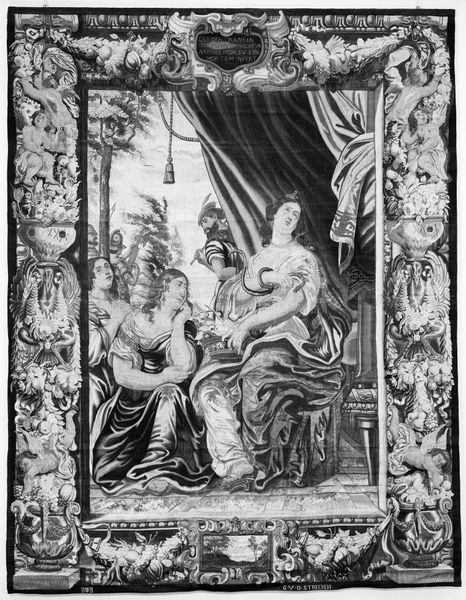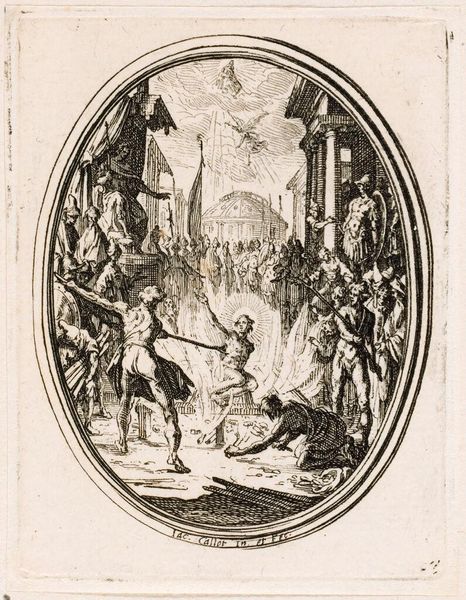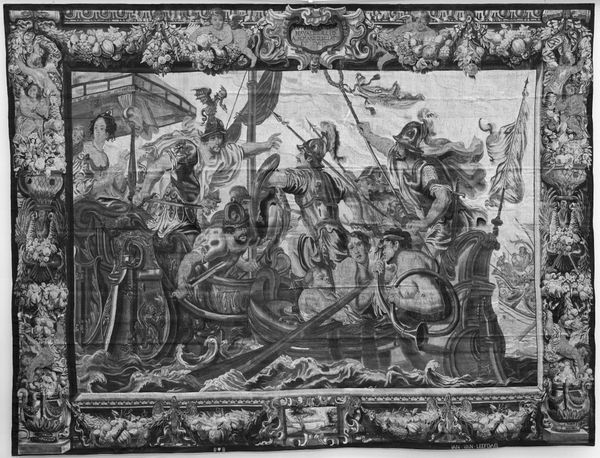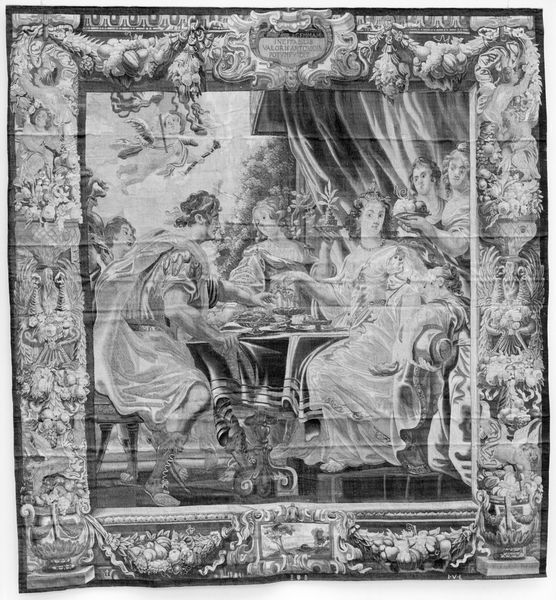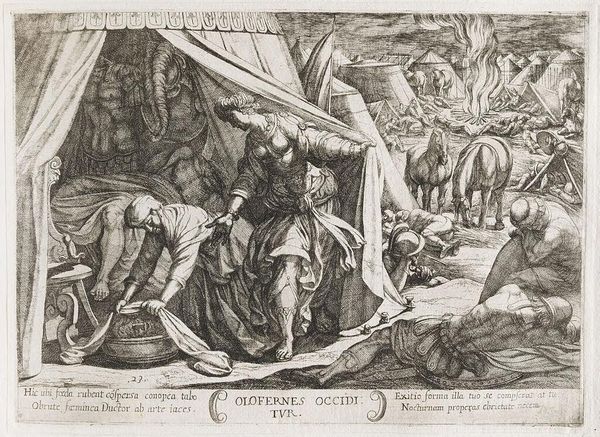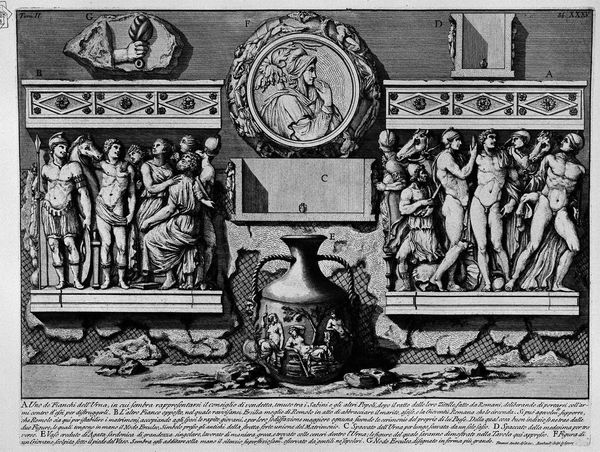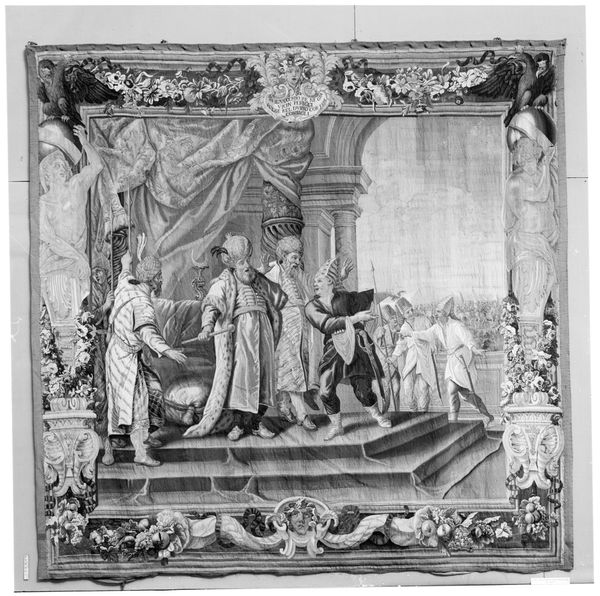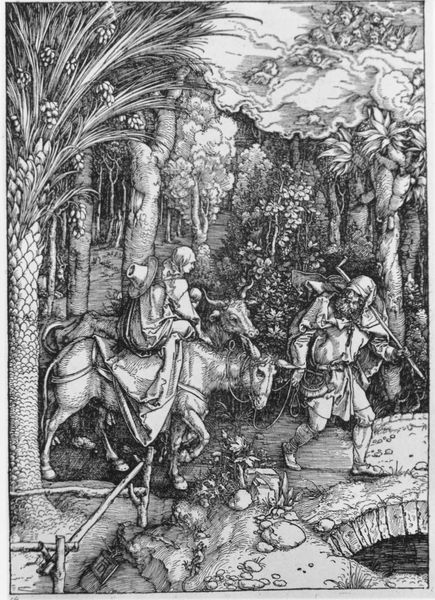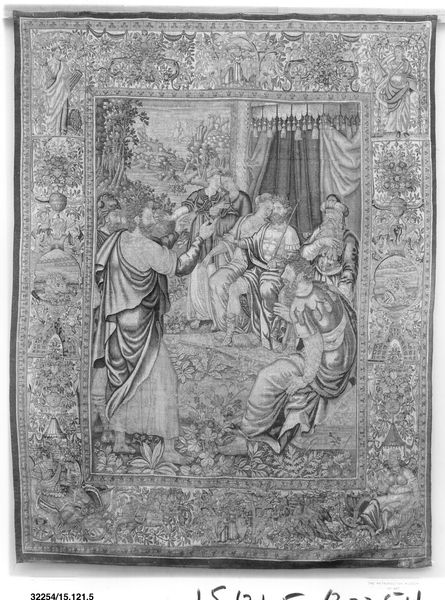
The Meeting of Antony and Cleopatra from a set of The Story of Antony and Cleopatra 1645 - 1677
0:00
0:00
textile, sculpture
#
boat
#
facial expression drawing
#
mechanical pen drawing
#
pen illustration
#
pencil sketch
#
textile
#
junji ito style
#
text
#
charcoal art
#
sculpture
#
pen-ink sketch
#
horse
#
men
#
tattoo art
#
decorative-art
#
pencil art
#
intricate and detailed
Dimensions: H. 163 x W. 204 inches (414 x 518.2 cm)
Copyright: Public Domain
Justus van Egmont created this tapestry of “The Meeting of Antony and Cleopatra” in the 17th century. Tapestries such as this one functioned as portable symbols of wealth and power. In this scene, Cleopatra is enthroned on a lavish ship as Antony arrives on horseback. The tapestry weaves together classical imagery, with the goal of evoking the grandeur of ancient Rome, with baroque exuberance in its ornamental details. Tapestries like this one would have adorned the walls of palaces, reinforcing the patron’s status through association with historical greatness. Made in a period of European history defined by the consolidation of monarchical power, this tapestry served as a visual reminder of the patron’s own authority and cultivated tastes. To understand the social role of tapestries like this, we can consult inventories of aristocratic collections, treatises on courtly behavior, and architectural histories of European palaces. These sources reveal how art played an important role in the construction of social identity and the projection of power.
Comments
No comments
Be the first to comment and join the conversation on the ultimate creative platform.
